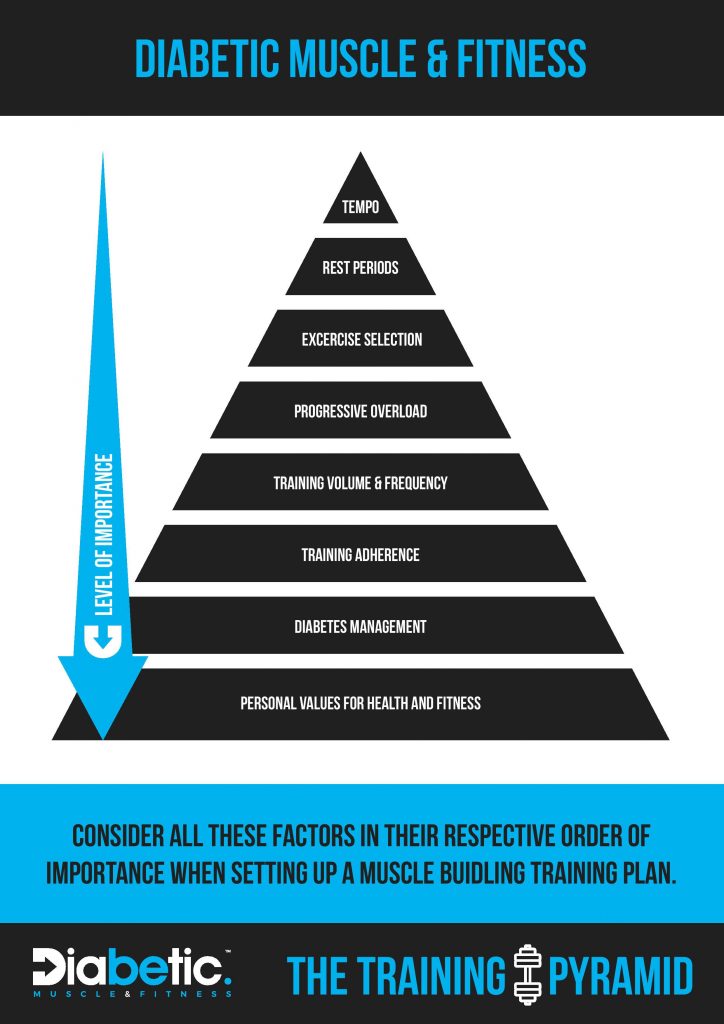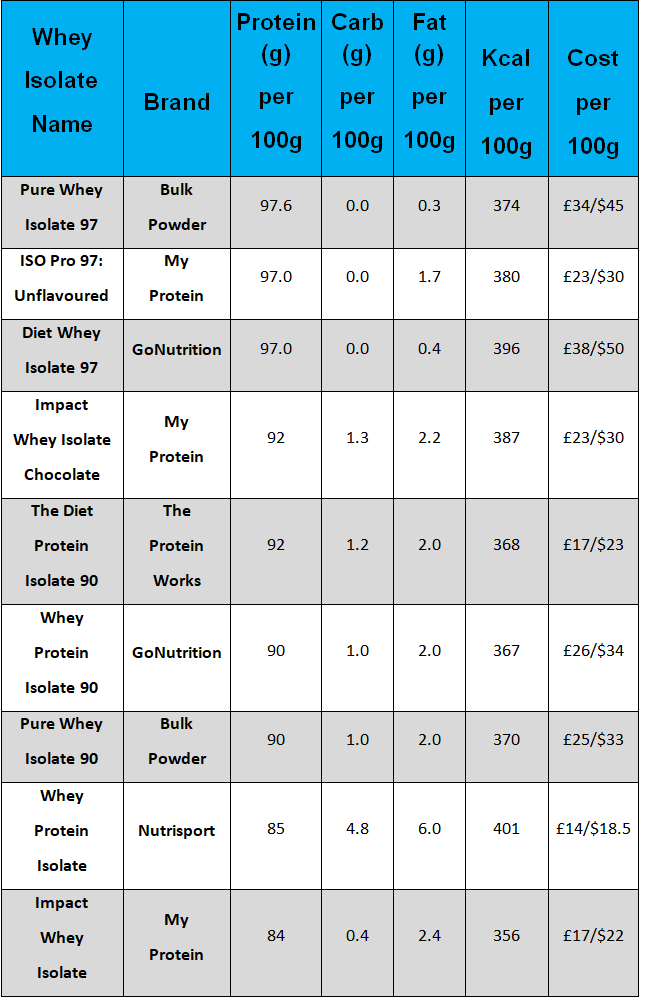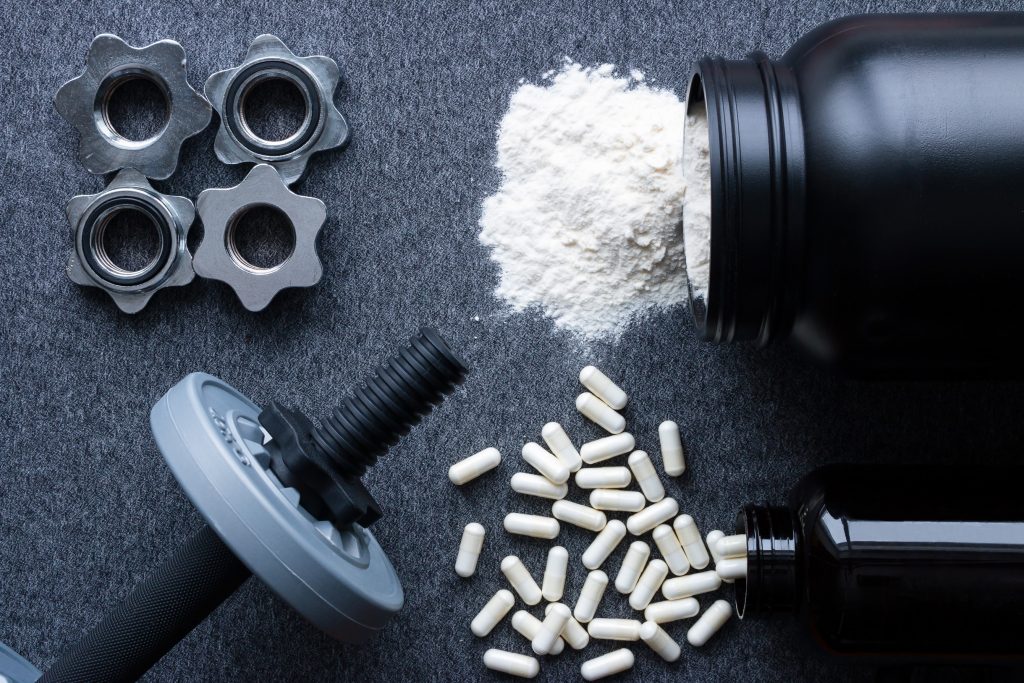WHAT YOU’RE ABOUT TO GET INTO?
3814 words, 30-minute read.
KEY POINTS
- Whey protein is the least important thing you need to worry about when it comes to building a better looking body.
- Certain types of whey protein are overpriced and aren’t worth the money.
- Whey protein will not ruin your kidneys or liver.
- Whey protein can affect your blood glucose levels and needs to be accounted for with the appropriate level of medication.

Does whey protein live up to the hype for people with diabetes?
Can I take whey protein safely if I have Diabetes? What about my kidneys?
Am I wasting my money on another marketing scam?
My health care professional says I do not need protein supplements, do they really know, or are they playing it safe?
All my gym buddies take whey and getting results, but they don’t have diabetes, will it work for me?
These are questions I hear all the time in my clinical Diabetes practice. Mainly by young men and women who are starting at the gym and want to build a great physique. They want to maximise their gym efforts by supplementing with whey protein. But they are concerned with safety, effect on blood glucose, and their finances. Sound familiar?
There are some amazing articles online that have every last detail on whey protein. But I am guessing you do not want every last detail, right?
If you want the most potent information, in an easy to understand format, that is specific to diabetes? This article is perfect for you.
Not only that, it details the best practical strategies, taken straight from the pioneering Diabetic Muscle and Fitness Training Lab . These strategies are guaranteed to put you in control of your blood glucose level, and get the most out of whey protein.
Oh, one more thing, I guess you want a diabetes specific guide for how to choose the right whey? Don’t worry this article covers that to.
Ready?
Let’s go.
Before we get into the specifics, let’s zoom out to get some perspective.
How important do you think whey protein is in the grand scheme of losing weight and building a better body with diabetes?
Very Important?
Sort of important?
Not so important?
Check out the Diabetic Muscle and Fitness Pyramid below.

As you can see Phil Graham has outlined very clearly the most important dietary factors when it comes to building a better body with diabetes.
- A high value on fitness and diabetes management. (Your WHY)
- Excellent blood glucose control.
- Dietary adherence.
- Appropriate calorie intake for your set goal.
- Adequate essential macronutrient intake – especially protein which, according to the well-researched Diabetic Muscle and Fitness Guide, should fall into the following ranges:
- Fat Loss Protein Recommendations: 1.7 – 2.0g/kg (0.8 – 0.9g/lb) of lean body mass.
- Mass Gain Protein Recommendations:4 – 1.7g/kg (0.6-0.8g/lb) of lean body mass.
- Dietary Timing
- Micronutrient, fibre and water
Then…
Last, but not least – Supplements.
I would argue there are other more important factors before supplements – all of which are outlined in the Diabetic Muscle and Fitness Guide. These include
- Progressive Muscular Overload.
- Fatigue/Stress management and Sleep.
As you can see there are many more important factors to consider than the newest whey protein on the market.
Supplements and esoteric practices have at best, a 5-10% impact on your muscle building and fat loss efforts.
How many times have you jumped down the rabbit hole and spent madly on the next breakthrough supplement?
Many times?
Me too!
Before you do it again, ask yourself the following questions:
- Is my diabetes control on point?
- Do I have a HbA1c of 6.5% (48mmol/mol) or less, with less than five hypos a week?
- Am I consistently getting 7-9 hours sleep every night?
- Am I hitting my protein targets?
- Are my food choices real or fake?
- Am I managing stress well?
It is easy to jump to the quick fix, after all that’s how our brains are wired. Resist, get the fundamentals sorted first.
Need some help? That’s why the Diabetes Muscle and Fitness Training Lab was started.
To provide you with evidenced based knowledge that is converted into daily strategies. Most importantly, the community is full of people with diabetes who have, or are working towards, a great physique.
If you’re not in our Facebook group already – take two seconds and join here. Then come back to read the rest of this article.
Once you have the fundamentals in place. Let’s see what benefits whey protein has to offer people with Diabetes.

What is whey protein?
How is it manufactured?
Whey is the water soluble protein in dairy, its fat-soluble sibling is casein.
Whey is technically the group of milk protein polypeptides (lots of amino acids bonded together) left in the liquid portion. Once dried it’s put in a tub and sold off the shelf as whey protein powder.
Whey has a variety of polypeptides that come in different amino acid combinations and structures. They include ß-Lactoglobulin (BCAA rich), Alpha-Lactalbumin (L-Leucine rich), Immunoglobulin’s (L-Cysteine rich), Glycomacropeptides (hunger suppressing), which all have unique bioactive properties. Whey has all the essential amino acids (EAA) and a high content of branch chain amino acids (BCAA). It has the closest amino acid makeup to skeletal muscle, and gets absorbed rapidly.
This gives whey the potential of driving muscle protein synthesis, as it provides all the building blocks, in the right amounts.
Does this potential get realised?
Keep reading and you will find out.
But before that, what are the whey protein options you see on the shelf?
Do you know the key differences, and which is best for you? Don’t worry, you soon will.
Once separated from casein, whey undergoes a variety of purification processes, leaving it in one of three forms:
- Whey Protein Concentrate– Contains between 30-80% protein depending on manufacturer. This is the cheapest because it contains a small amount of fat and lactose. If you want the best bang for your buck, and you are not concerned with a little fat and lactose, this is perfect for you. Look for whey concentrate that is 70-80% protein by weight. This will ensure you get a good protein content, and not a mass gaining blend full of fast acting carbohydrate. It should be per 100g:
-
- 70-80g of protein
- Total carbohydrate less than 10g
- Total fat less than 10g
- As few additives and ingredients as possible
- Cost between $15-$26 (£12-£20) per 100g
Below is a comparison of some of the popular whey protein concentrates, in protein content order. Notice a few things as you look at them.
- The names can be deceiving, 100% Whey!
- Cost range from $15-$26 (£12-£20)
- Differences in fat and protein content
Also remember a typical serving is 25-50g, so the fat and carb content are a quarter to half of what is shown in the table.

Key Questions to consider when selecting whey concentrate with Diabetes:
- How much impact will 3-6g carbohydrate have on my blood glucose level?
- How does an extra 4-8g of fat impact on my overall daily calorie intake?
- Do I have an unfavourable reaction to milk proteins or lactose?
Do I want flavourings added or not?

Source: http://compareproteins.co.uk/
Bottom line: If you ensure the protein is at least 70g per 100g weight, you are not going to get a huge amount of fat and protein per serving.
- Whey protein isolate– is the result of further purification, to remove almost all the fat and lactose. Look for whey isolates that have more than 80% protein by weight. To ensure getting a good whey isolate, and not a glucose busting mass mix, it should be per 100g:
-
- 80g or more protein
- Total carbohydrate less than 5g
- Total fat less than 6g
- As few additives and ingredients as possible
- Cost between $22-$46 (£17 – £35) per 100g
Below is a comparison table of some of the popular whey protein isolates. They are in order of protein content. The real questions you need to ask yourself are:
- What’s the benefit of a 97g vs. 90g vs. 80g whey isolate?
- Is a difference in carb and fat content per 25-50g serving of 0.25-2.0g a deal breaker?
- Do I want flavoured or unflavoured?
Do I have issues with a tiny amount of lactose or milk proteins?

Source: http://compareproteins.co.uk/
Bottom line: Don’t be dragged into the hype that 97% pure protein is massively better than 90%! If you have lactose intolerance then you may need the 97% stuff, otherwise, save your hard earned cash!
- Whey protein hyrdrolysate– is the most purified form, following partial hydrolysis of large polypeptides into di-peptides and free amino acids. This does lead to some loss of the sulphur rich amino acids, such as L-Cysteine, and makes it taste very bitter. This form is ideal for people who have allergies to milk proteins or digestive issues, such as infants and people with Chron’s disease. Adults with intact digestive systems tolerate whey concentrate and isolate very well. Their pockets tolerate it even better! If you have digestive issues, a good whey hyrdrolysate should be per 100g:
-
- 90g or more protein
- Total carbohydrate less than 1g
- Total fat less than 2g
- As few additives and ingredients as possible
- Cost $33-$66 (£25-50) per 100g
Bottom line: 99% of adults have the digestive capability to process whey concentrate and isolate. So only go for whey hyrdrolysate if you have specific digestive issue, or have not managed well with isolate.

How do you know if you are buying a quality product that has been rigorously tested?
This is a great question. Regulations on supplement manufacturers vary from country to country. Enforcement of them over the internet is virtually non-existent.
My suggestion is to head over to Labdoor.com, they independently test and score whey protein, among many other supplements. You can filter your criteria by cost, quality and several other useful metrics.
If you want to compare brands and costs, go to http://compareproteins.co.uk/. You can filter your search by protein content, and almost any variable you can think of.
Whey protein’s effect on muscle protein synthesis and insulin requirement.
Whey protein spikes amino acid levels in the blood within 40-60minutes, most importantly, it spikes L-Leucine. Research (1) shows this spike in L-Leucine is accompanied by an increase insulin production in non-diabetics, and an elevation of protein synthesis by 30%, when compared to casein and animal protein in the first three hours. But, total protein accumulation is equal between all sources at seven hours.
There are a few important take-homes:
- If you are training twice a day, whey protein may well offer an advantage in protein synthesis.
- If you choose whey protein with Type 1 Diabetes, you are going to need more insulin than expected due to a spike in L-Leucine. If you don’t, you will miss that 30% increase in muscle protein synthesis, and have a high glucose level!
Inside the Diabetic Muscle and Fitness Training Lab we have a highly detailed execution guide called ‘Becoming a Bolus Wizard’ that covers everything you need to know about insulin dosing at meal times. There is a module and calculator showing you how to dose insulin accurately to cover protein. Gain 2 Months Free Access to the Training Lab (+ a free t shirt and protein shaker) by clicking here.
- If you choose whey protein with Type 2 diabetes, the effect on your blood glucose level could go either way. If you still have adequate beta-cell function in your pancreas, the L-Leucine spike will trigger a surge of insulin. This has been shown to reduce after eating glucose levels by 20%. However, if your Beta-call function is exhausted, you may require extra insulin if you are injecting.

Whey protein: Does it increase strength and improve body composition?
Ever seen a claim such as:
“Whey protein, scientifically proven to increase muscle mass whilst shredding fat!”
This type of headline is from studies where protein intake is sub-optimal. When protein intake is consumed at 1.5-2.0g/kg/day, the muscle gains from additional whey disappear.
But if you are struggling to hit your daily protein requirement, whey protein is a great option for you.
Whey protein – Does it have an antioxidant effect?
Diabetes is unique in that it poses a huge oxidative stress challenge to the body. Constant fluctuations in blood glucose levels decrease cellular antioxidant levels, which in turn increase the oxidative load on the body (2).
What is oxidative stress, and how do antioxidants work?
Although your body needs oxygen to survive, it is oxygen that can lead to oxidative stress in the body. As you breathe oxygen to produce energy, there are by-products created called FREE RADICALS.
If theses FREE RADICALS are not neutralised, they cause damage to cell membranes, proteins and genes, by a process called oxidative stress.
Imagine you start a little fire to keep warm whilst camping in dry bush land. You need the fire for your survival, but you would surely put the fire out before you went to bed, right?

Of course you would. The water you extinguish the fire with, is that same principal of how antioxidants work. Antioxidants are forever neutralising free radicals before they can cause oxidative stress.
Now imagine one night you left the fire flickering and fell asleep, what’s the risk? Complete bush fire! Probably not, it would not go up that night, but if you do this often enough, eventually a massive bush fire is guaranteed!
Those bush fires in the body are caused by persistent oxidative stress with little antioxidant neutralisation. If this goes on uncontrolled for years, the risk of cancer, heart disease and Alzheimer’s increases massively. As for building muscle, very little progress!
You might be thinking, the solution is easy, just throw back some vitamin C and a load of other antioxidant pills, right? 100% not right!
The most powerful antioxidants are already present in the body. One of the most potent being Glutathione. Glutathione is responsible for 24/7 protection in all your cells, by neutralising free radicals.
Therefore, it is more important to supply an abundance of building blocks needed to re-generate Glutathione. That’s where L-Cysteine come in. This amino acid is the rate-limiting factor for the regeneration of Glutathione.
As whey is very high in L-Cysteine, it may have potential in preventing oxidative stress.
Worth investigating, don’t you agree?
Animal studies (3) have shown the addition of whey protein reduces inflammation, elevates glutathione stores, lowers HbA1c and reduces insulin resistance.
I hear you, you are not animal, what about human research?
Human research is lacking in terms of mechanistic proof of the antioxidant effect. But at the very least there some human trials showing cardio protective effects for people with type 2 diabetes when supplemented with whey protein (4).
Whey protein: Does it cure Non-alcoholic Fatty Liver Disease (NAFLD)?
NAFLD is very common in people with type 2 diabetes, and a serious health risk. One study (5) showed up to 75% of insulin naive type 2’s had the clinical markers of NAFLD. It was suggested insulin resistance is the main culprit. The same study showed the type 1 diabetes population had no increased risk, further adding weight to insulin resistance being the main factor.
A Study (6) supplementing NAFLD subjects with 20g whey protein per day over 12 weeks showed an improvement in liver function, elevated liver glutathione levels, reduction in liver fat mass, and improvement in body composition. The benefit is thought to be due to the increase in L-Cysteine from the Whey protein.

Does whey protein cause kidney damage in people with diabetes?
Are your kidneys not in poor health?
Do you have chronic kidney disease stage 3 or higher?
If you answer yes to either of these two, then check with your health care professional before adding extra protein to your diet. It may make it worse.
If you answered no to both, then a higher protein intake does not pose an issue (7). If unsure, always check with your healthcare provider.
When is the best time to take whey protein if you live with diabetes?
Are you meeting your daily protein intake for your phase of training?
If you are, there is little benefit to be gained by adding in extra whey protein. You will be wasting your money by downing multiple shakes before and after training.
However,
Are you are planning on training twice a day, training fasted first thing, or are you not meeting your daily protein needs?
If yes, then having 20g whey protein before (8), and certainly in the one hour after, will ensure adequate amino acid supply. Especially the L-Leucine spike to drive muscle protein synthesis.

Let’s whey all this up.
What are the most important factors for building muscle and a great looking physique with diabetes?
That’s right, those first and second order factors in the Diabetes Pyramid of Muscle Building:
- Blood glucose control
- Consistent calories intake
- Progressive overload
- Sleep
- Adequate total protein intake according to phase of training
- Diet quality
- Allostatic load (stress management)
When you have these checked off, then consider whey protein. Let’s summarise the potential benefits for different types of diabetes.

People with Type 1 Diabetes who may benefit from supplemental whey protein:
- Those with sub-optimal dietary protein intake <1.2/kg/day.
- Those who train twice per day.
- Those who struggle to meet protein requirements through real food due to time.
- Those who are leaning down and need to hit 2.0g/kg/day.
People with Type 2 Diabetes who may benefit from supplemental whey protein:
- Those with sub-optimal dietary protein intake <1.2/kg/day.
- Those who train twice per day.
- Those who struggle to meet protein requirements through real food due to time.
- Those who are leaning down and need to hit 2.0g/kg.
- Those who have NAFLD if substituted for other calorie sources.
Key things to pay special attention to:
- Whey protein will require more insulin than expected due to L-Leucine content. Very important for people with type 1 diabetes, and people with type 2 diabetes who have exhausted beta-cell pancreatic function.
- If you have chronic kidney disease stage 3 or above, it is not advisable to have extra protein. Check with your healthcare professional.

What to consider when choosing a Whey protein:
- Do I have lactose intolerance or milk protein allergy?
- If yes, go for a 97% whey isolate or hyrdrolysate
- If no, then go for a whey concentrate or isolate.
- Does it matter if per serving, the carb and fat content is 3-6g?
- If yes, choose a whey isolate >90%
- If not, choose a 70-80% whey concentrate
- Is cost a major consideration?
- If yes, choose a 70-80% whey concentrate
- If no, choose a whey isolate >90%
There are a host of other considerations depending on the type of person you are:
- Grass fed animals vs. not grass fed
- Added sweeteners vs. no added sweeteners
- Flavourings vs. no added flavourings
For these, it is over to you to check the labels!

If this article has helped you, please share it on your social and educate other people with diabetes.
There’s More!
Believe it or not. This article is only a condensed version of the main Whey Protein and Diabetes article inside The Training Lab.
If you found this article useful – you’ll gain even MORE VALUE information inside The Training Lab. There is an insane amount of regularly updated high quality content inside the Lab waiting for you. It will add immense value to your diabetes management, health, muscle building and fat loss efforts.
You won’t find content like this anywhere else on the internet.
References
1. Reitelseder, S. et al (2011) Whey and casein labeled with L-[1-13C]leucine and muscle protein synthesis: effect of resistance exercise and protein ingestion. Am J Physiol Endocrinol Metab. 2011 Jan;300(1):E231-42. doi: 10.1152/ajpendo.00513.2010.
2. Asmat, U. (2015) Diabetes mellitus and oxidative stress—A concise review. Saudi Pharmaceutical Journal Volume 24, Issue 5, September 2016, Pages 547-553
https://doi.org/10.1016/j.jsps.2015.03.013
3. Jain, S.K. (2009) L-cysteine supplementation lowers blood glucose, glycated hemoglobin, CRP, MCP-1, and oxidative stress and inhibits NF-kappaB activation in the livers of Zucker diabetic rats. Free Radic Biol Med. 2009 Jun 15;46(12):1633-8. doi: 10.1016/j.freeradbiomed.2009.03.014.
4. Ballard, K.D. et al (2013) Acute effects of ingestion of a novel whey-derived extract on vascular endothelial function in overweight, middle-aged men and women. Br J Nutr. 2013 Mar 14;109(5):882-93. doi: 10.1017/S0007114512002061.
5. Cusi, K. (2017) Non-alcoholic fatty liver disease (NAFLD) prevalence and its metabolic associations in patients with type 1 diabetes and type 2 diabetes. Diabetes Obes Metab. 2017 Apr 17. doi: 10.1111/dom.12973.
6. Frestedt, J.L (2008) A whey-protein supplement increases fat loss and spares lean muscle in obese subjects: a randomized human clinical study Nutr Metab (Lond). 2008; 5: 8. doi: 10.1186/1743-7075-5-8
7. Chitapanarux, T. et al (2009) Open-labeled pilot study of cysteine-rich whey protein isolate supplementation for nonalcoholic steatohepatitis patients. J Gastroenterol Hepatol. 2009 Jun;24(6):1045-50. doi: 10.1111/j.1440-1746.2009.05865.x.
8. Friedman, A. N. (2004) High-protein diets: potential effects on the kidney in renal health and disease. Am J Kidney Dis.2004 Dec;44(6):950-62.


